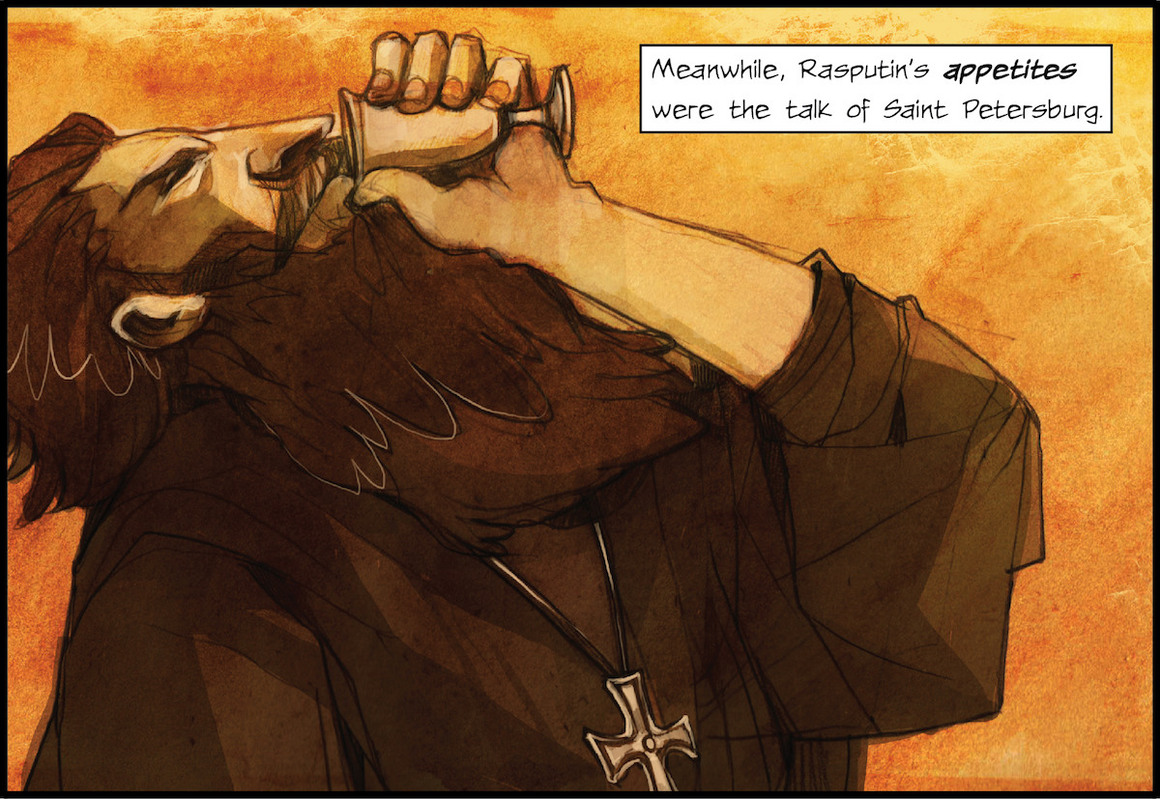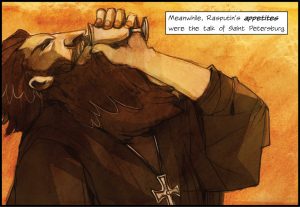Atlas Obscura recently posted a Rasputin primer apparently edited from the Rasputina webcomic – so it’s kinda like a graphic short story synopsis. Check it out:
http://www.atlasobscura.com/articles/a-visual-history-of-the-riseand-demiseof-rasputin
Meanwhile, though most of us are aware of Rasputin’s lifestory and the many myths woven around it, not a lot of thought is given to the context which is kind of key when you’re thinking about a modern ruler being influenced by a peasant-born mystic. The Wikipedia account provides some background:
“Even before Rasputin’s arrival, the upper class of St Petersburg had been widely influenced by mysticism. Individual aristocrats were obsessed with anything occult. In those days, Imperial Russia was confronted with a religious renaissance, a widespread interest in spiritual-ethical literature and non-conformist moral-spiritual movements, an upsurge in pilgrimage and other devotions to sacred spaces and objects. The “God-Seeking” were shaping their own ritual and spiritual lives (e.g. Helena Blavatsky, George Gurdjieff, and Pyotr Ouspensky).
“Alexandra worried a lot about herself, her son and his condition; she had invited her physician 42 times within two months. Earlier Papus had visited Russia three times, in 1901, 1905, and 1906, serving the Tsar and Tsarina both as physician and occult consultant. After the healer Nizier Anthelme Philippe died, Rasputin came into the picture. It is possible he realized the weaknesses of the couple and was able to use it.
“In his religious views, Rasputin was close to the so-called Khlysts, an obscure Christian sect with strong Siberian roots, who affirmed ‘the existence of a perpetual warfare between flesh and spirit’[80] and who called themselves ‘Men of God'”. Read the entire piece here: https://en.wikipedia.org/wiki/Grigori_Rasputin
I will point out that occult scholars have suggested that notorious Russian-born female mystic Maria De Nagloska may have been influenced by Khlyst doctrines as well. Also one notes that Helena Blavatsky and her Theosophical Society were a significant influence on Aleister Crowley and Papus/Gerard Encausse was an important figure in the Gnostic Church that our Ecclesia Gnostica Catholica developed from.
Thanks to Soror Hypatia for the tip!


